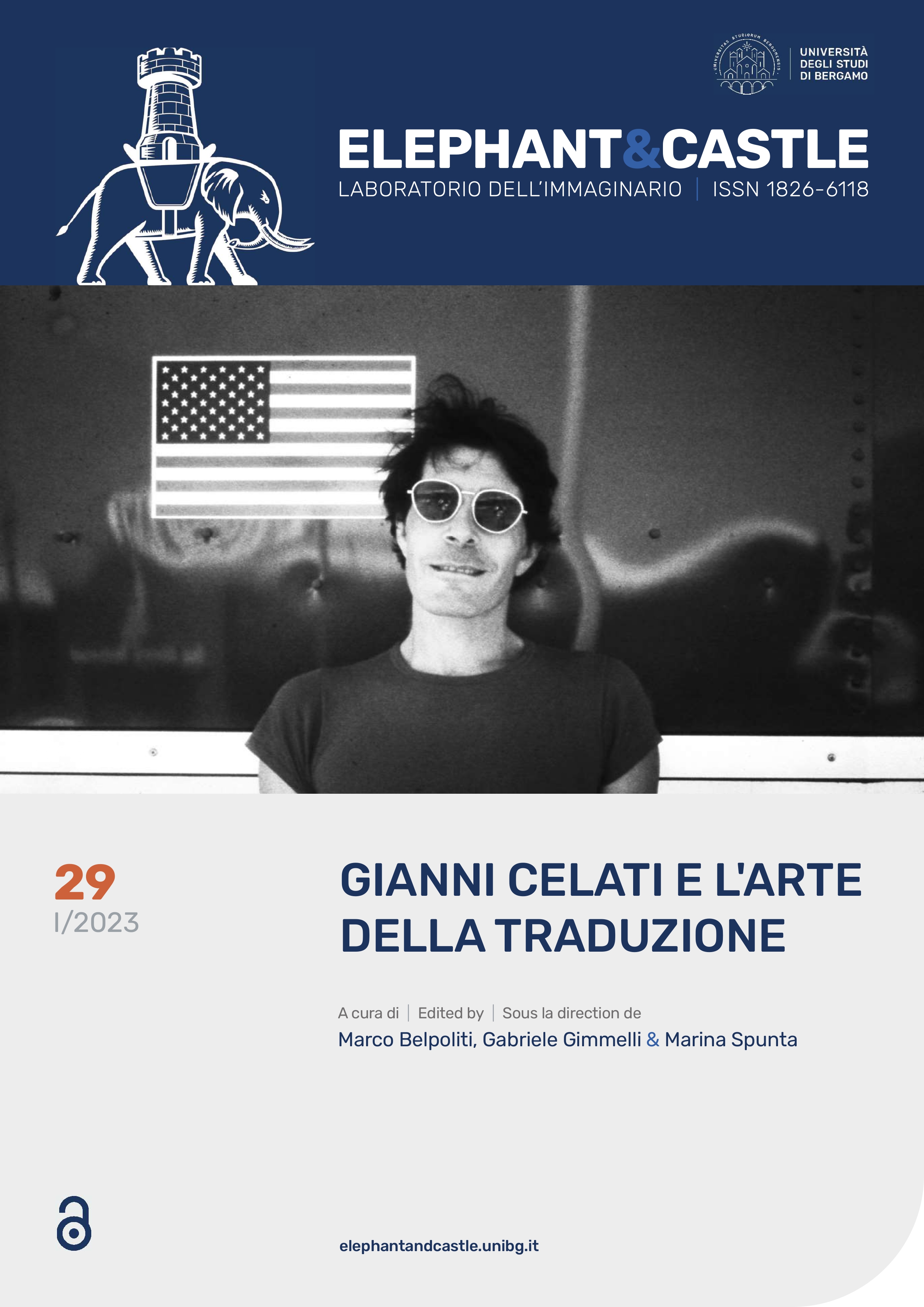Celati "translating" Wittgenstein: applying the philosophy of ordinary language to fiction by lending an ear to the text
Keywords:
Wittgenstein, Celati, translation, philosophy of ordinary language, prosodyAbstract
Gianni Celati has read Ludwig Wittgenstein, but few studies so far have investigated this influence in philosophical terms.The present contribution intends to address this relationship, with particular attention to Celati’s traductive activity based on listening to the prosody of texts. In this context, Celati can be considered as a translator in at least two senses : as a translator of disciplines, he "applies" Wittgenstein's philosophy to literary creation (Celati, West,1985; Belpoliti 2016); as a translator of natural-historical languages, he crosses that "land of none" which, according to Paolo Virno (2015) is the power of language "of which the infant, the aphasic, and the translator have a direct experience." Gianni Celati translator crosses the no-man's-land of the faculty of language in his motion from one language to another. In transit, he casts off the moorings of the source language and navigates by ear/feeling into the can-do of human living. He listens to what the text is saying: it will then let settle an intensity, a particular syntax, a rhythm (cf. Narrative in fuga, 2019), which the author will return in the target language. In the journey made by translating, he brings to the surface the conditions of existence of language while listening to the voice of the text. Indeed, it is no mystery that for Celati, translation is essentially a sonic affair, in which the acoustic materiality of synaesthetic words counts and not necessarily their meaning. Celati the translator goes in search of an "atmospheric turbulence" (Introduzione a Bartleby lo scrivano,1991): Wittgenstein's Stimmung, which we relate to Meschonnic's "signification" (La critique du rythme, 2009), through the musicality of the text; one relies not so much on meanings but on the composition of signifiers. A story, in fact, is translatable if it is first of all heard. Celati writes about Ulysses: "It's not important to understand everything: it's important to hear a sound." Prosody and rhythm of the narrative text are in Celati the tools of disarticulation of language toward the sonic of words, in which the power of meaning is deactivated. Translation is thus an exercise that lightens the sense of language to the point of skimming the faculty-of-language itself. Given these premises, the article aims to identify an idea of translation peculiar to Celati. The article is the result of research conducted at the Celati Fund of the Panizzi Library in ReggioEmilia and also makes use of unpublished materials provided to me by Gillian Halley.
Downloads
Published
How to Cite
Issue
Section
License
Copyright (c) 2023 Elephant & Castle

This work is licensed under a Creative Commons Attribution 4.0 International License.






